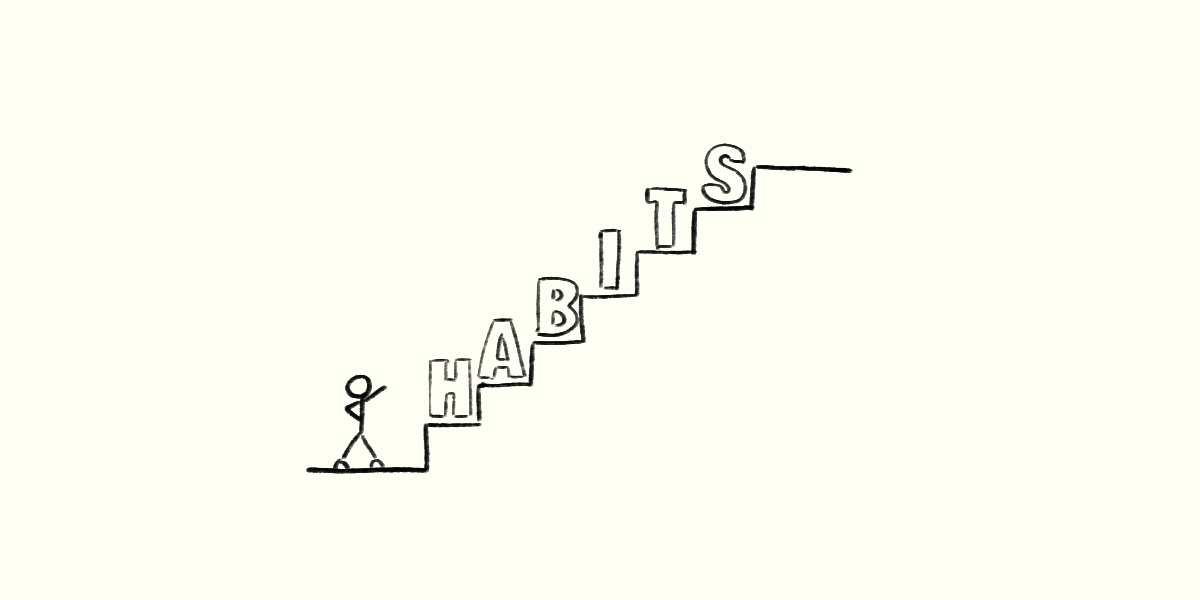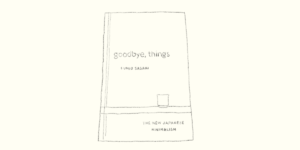Regarding this article, it introduces the routines of geniuses who have accomplished remarkable work.
It aims to present routines of geniuses like Kant, Beethoven, Darwin, intending to incorporate their routines into our life.
The reference for this article is “Daily Rituals: How Artists Work“
This book’s good point is a factual representation of the routines of geniuses. It is based on records and testimonies from those around them, providing insight into how these geniuses lived.
Why are routines important?
Primarily, let’s contemplate the significance of routines, which is the theme of this article.
Routines matter because consistent actions are essential for achieving significant goals.
Success in business, attaining a fit body, mastering a new language—these are goals many aspire to achieve but are challenging to accomplish in a single day.
The philosopher Aristotle left us with a famous saying:
“We are what we repeatedly do. Excellence, then, is not an act, but a habit.”
Routines of Geniuses
There’s a prevailing pattern in the routines of geniuses that we’d like to showcase.
Presenting the routine of a single genius can offer a more tangible idea for everyone.
For instance, we’ll exemplify Kant’s routine.

Immanuel Kant, an eminent figure, left a legacy in modern philosophy, establishing what is known as “German idealism” or “critical philosophy,” which continues to influence many.
Kant’s routine stands as a quintessential example of a genius’s routine.
Trivia
There is an amusing anecdote that illustrates Kant’s disciplined lifestyle.
Kant’s activities were carried out at precisely scheduled times. Consequently, locals reportedly knew that when Kant emerged from his front door wearing a gray coat, it was exactly 3:30 p.m.
However, this pattern doesn’t fit all geniuses. It’s a routine common to a vast majority, so keep that in mind. For instance, Freud or Picasso had entirely different routines from the ones presented here.
Kant’s Routine
5:00 AM
He wakes up at 5 in the morning.
He has a servant who has been working for Kant for many years wake me up. This servant is a former soldier and has been sternly instructed by Kant to ensure he doesn’t oversleep.
After getting up, Kant drinks one or two cups of weak tea and smokes a pipe.
Following his smoking session, he prepares for the day’s lectures and then engages in writing
7:00 AM
Deliver lectures at the university until 11:00 AM.
11:00 AM
Lunch at a restaurant, usually the only substantial meal of the day. Kant dined with diverse people, not just university professors, but various individuals from the town.
3:30 PM
Take a walk, visit friends, engage in conversations until 7:00 PM, or till 9:00 PM on holidays.
7:00 PM
Return home, do some work, followed by reading.
10:00 PM
Bedtime.
Kant went to bed every day promptly at 10 o’clock.
What We Can Learn from Genius Routines
Output should be in the morning
As soon as you wake up, engage in output-related work. Because it is the time when your mind works best during the day. Geniuses primarily wrote or composed music in the morning. Make the most of the precious time in the morning.
What modern people like us tend to do is input in the morning. Upon waking up, don’t most of us check news sites on our smartphones first thing? The morning is for output. Input should be done in the evening.
Trivia
Many geniuses start their day by drinking coffee or tea after waking up.
Beethoven had a particular obsession with morning coffee. He always insisted on using exactly 60 coffee beans for one cup of coffee.
Simple meals
Don’t eat until you’re full. If you eat until you’re full, your brain won’t function well. Geniuses ate a substantial lunch only. They had light meals in the morning and evening.
However, there are occasions when social dinners occur at night. In such cases, it would be advisable to begin by reducing the amount you eat compared to your usual intake.
The author of “Les Misérables,” Victor Hugo, would reduce his food intake even when dining with others. While encouraging guests to eat heartily, he practiced a modest diet for himself.
Trivia
The author of “Les Misérables,” Victor Hugo, would reduce his food intake even when dining with others. While encouraging guests to eat heartily, he practiced a modest diet for himself.
Take a walk
Geniuses made a daily habit of taking walks and contemplating ideas during their strolls. Composer Tchaikovsky believed that, for creative work, he needed a daily two-hour walk. Consequently, he was said to be absolutely intolerant of any circumstance preventing him from securing his two hours of walking time.
Let’s also make a daily habit of taking a walk in the afternoon. When we are constantly busy, creative thinking becomes challenging. Let’s create gaps in our schedule to come up with creative ideas.
However, living in this busy modern world, finding time for a walk can be challenging. In that case, start by reassessing how you use your time. Most geniuses finished important tasks in the morning. Hence, they managed to secure time for an afternoon walk.
Trivia
The psychologist Freud also made walking a daily routine.
However, his walks seemed a bit unconventional. According to accounts from Freud’s family, he walked at an incredibly fast pace during his strolls.
Note-taking
Ensure you can take notes anytime. So you won’t miss out on inspiration.
Geniuses carried notes even during walks. Tchaikovsky and Beethoven used to carry staff paper while strolling. We should also follow suit and carry notes with us.
Trivia
Einstein always carried a notepad and a pen with him, whether by his bedside, in the bathroom, or whenever he went out. Whenever he had an insight, he would interrupt whatever he was doing, no matter the circumstances, to jot down the details of that inspiration in his notepad.
Input should be in the evening
Reading and checking news should be done in the evening or later. Because input can be done even when you’re tired. What’s crucial is focusing on output during your peak hours. Do what needs to be done at the right time. After checking your smartphone in the morning, do you end up endlessly browsing social media? Checking social media isn’t bad, but try doing it at appropriate times.
Trivia
Beethoven’s daily routine included going to a tavern when the day turned to dusk. There, he would reportedly enjoy a beer while reading the newspaper.
Social interaction in the evening
Interact with people in the evening or later. The reason is similar to the input should be evening. Your energetic hours are for output. Geniuses used to meet people in the evening. And many geniuses also replied to letters in the evening. We, modern individuals, are always responding to messages. Let’s prioritize responding to important messages and delay the rest.
Trivia
Many geniuses engage in games during the evening hours.
Charles Darwin, who wrote the theory of evolution, played the board game backgammon every night with his wife. It is said that when his wife, his gaming opponent, was winning, he often became quite upset.
Afterword
The above were the routines of geniuses.
If there’s anything that seems adaptable to your own life, I encourage you to give it a try.
For me, I’ve incorporated a habit of working in the morning and dedicating my evenings to input time. However, establishing a routine of taking walks is still a goal I haven’t achieved. I hope to reassess how I use my time and work hard to make it a habit.
If you find yourself challenging to adopt something new and happen to fail, don’t be disheartened. Immanuel Kant, whom we introduced as a representative example this time, established his routine around the age of 40. In his younger days, he was known to engage in card games and play until late at night.
If, after reading this article on habits, you are interested in learning more about how to establish habits, the following article may be helpful.

If you have any questions, feel free to send me a DM or leave a comment.
Sayonara










Comment